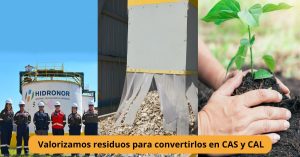Posted on November 5, 2020.
Every year our country generates about 3,000 tons of batteries as waste, and only about 467 tons are declared annually (mainly by industries, companies and hospitals). The rest of these are estimated to end accumulated in houses or garbage, and of what is recovered, 99% have as destination a security landfill, and only a small fraction is recycled.
To regulate this situation, the Rep. Law has as a new challenge to set collection and recovery goals, but without leaving behind the incentive to change the citizen culture for a good final disposal of batteries. This discussion is about to begin after the drafting of the regulations for end of life tires and containers and packaging, both awaiting approval in the Comptroller's Office, and that of lubricating oils, whose preliminary draft is about to be presented for public consultation by the ministry. .
The decree that will regulate battery recycling in Chile presents a series of challenges that were addressed in the study before mentioned. One of them will be the regulation of producers, considering that today there are more than 3,700 importers entering the country between 200 and 250 different battery brands, in addition to collection and recovery goals, fulfillment times, and how to establish battery categories.
Source: https://n9.cl/11bb9







